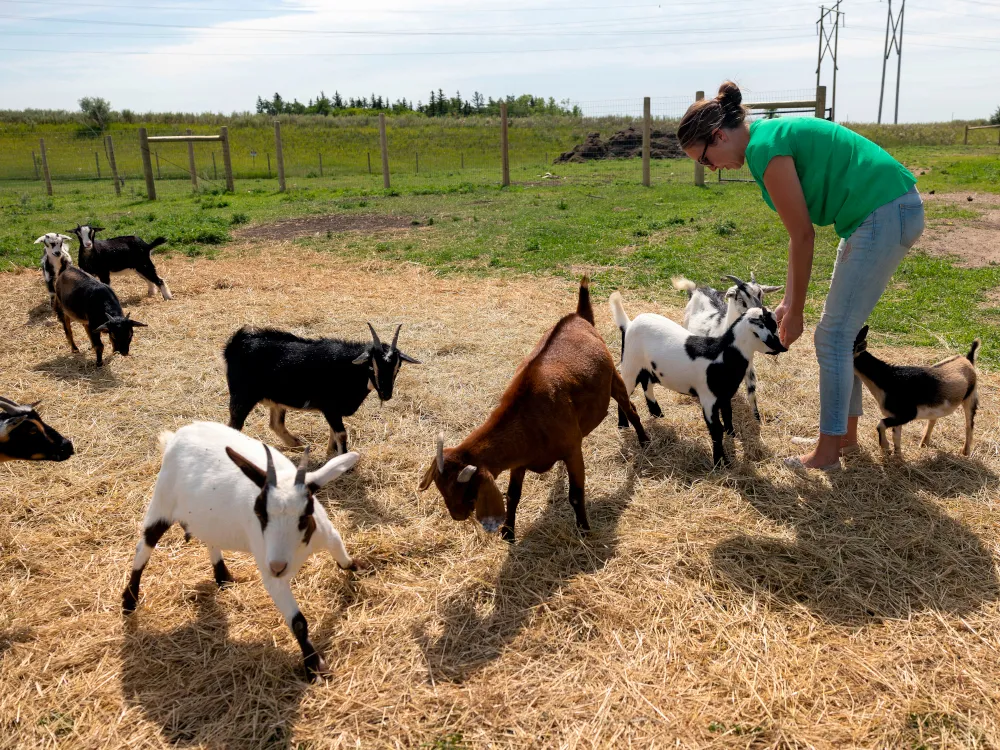When you think about King Charles III, the last thing you probably think about is family farming. But Canada’s new monarch made an impassioned plea over a year ago for small family farmers in the United Kingdom and around the world to come together in a co-operative movement to better ensure their survival.
A strong advocate of organic farming, Charles has also created what he calls a “Terra Carta,” a charter that lays out a roadmap for producing environmentally sustainable, healthy food, while ensuring the survival of small family farms.
But in the U.K., as in Canada, many small family farms are barely scraping by, and those who grew up on such farms are increasingly fleeing the fields and barns for more lucrative, white-collar careers elsewhere.
Consider the following worrisome statistics.
Ontario is losing approximately 70 hectares of farmland per day, according to the Ontario Federation of Agriculture. It’s being swallowed up by developers who are paving over once-fertile soil to build subdivisions, retail outlets, warehouses and parking lots.
Automation and technology are driving the consolidation of farms, which has led to a stark decline in mid-sized farms. The number of farms across the country has fallen by 44 per cent over the last 45 years — down from around 338,500 farms in 1976, to 190,000 farms in 2021.
Our farmers aren’t getting any younger, either. According to Canada’s 2021 Census of Agriculture, the average age of Canada’s farm operators increased to 56 in 2021. Our farmers are also increasingly struggling to make ends meet. In 2020, 48 per cent of farm operators in Canada reported working off the farm for supplemental income.
This matters for a number of reasons. For one, agriculture should be considered a strategic industry that needs to be safeguarded. I’ve always been a big believer that any country that could feed its own people without relying on imported food would be a truly independent, strong and stable country.
In other words, national food security should be a priority. But it will be harder to achieve if we allow our family farms to disappear.
Another important reason is crop diversity. Many of our large farms employ monocrop agriculture, which is the practice of sowing one crop every year on the same chunk of land. This practice ends up stripping the soil of its nutrients and killing the bacteria and micro-organisms needed to keep the soil fertile.
Large, industrialized farms are tailor-made for monocropping because of their impressive economies of scale, whereas smaller farms tend to be more bio-diverse and grow multiple crops. They are also more likely to employ natural methods of pest control and use more regenerative soil practices. We need these smaller family farms to lead the transition to organic food, and we need them to maintain food security in the years ahead.
Mid-sized family farms are simply too small to compete with larger, heavily mechanized farms. If these smaller farms grew organic foods, they would be more competitive and have a greater chance of survival. But they still need some assistance during the conversion to organic agriculture, which is why we need to get smarter about our agricultural policies and other support mechanisms if we wish to preserve family farming.
We also need to ensure that our family farmers make enough income to support themselves, either through subsidies or tax breaks. They carry out backbreaking work, day in and day out, that puts food on our tables. They deserve to make as least as much as a civil servant.
Another solution I’ve advocated for is creating a national trust fund for family farms. In the decade ahead, many of our aging farmers will retire and their kids won’t be taking over for them. Instead, they’ll simply sell the farms — many of which have been around for generations.
Some of these farms will get bought up by bigger agricultural outfits; others will end up being paved over and developed. That’s why the government should empower the national trust fund to preserve our vanishing farmland by buying abandoned farms and then leasing out the land to young Canadian families or individuals who want to take up a rewarding career growing food.
The days when Canada was an agricultural nation and farms were the backbone of our country will never return. But family farming is more than just a vestige of our heritage — it will also play a pivotal role in ensuring a healthy and prosperous future.

